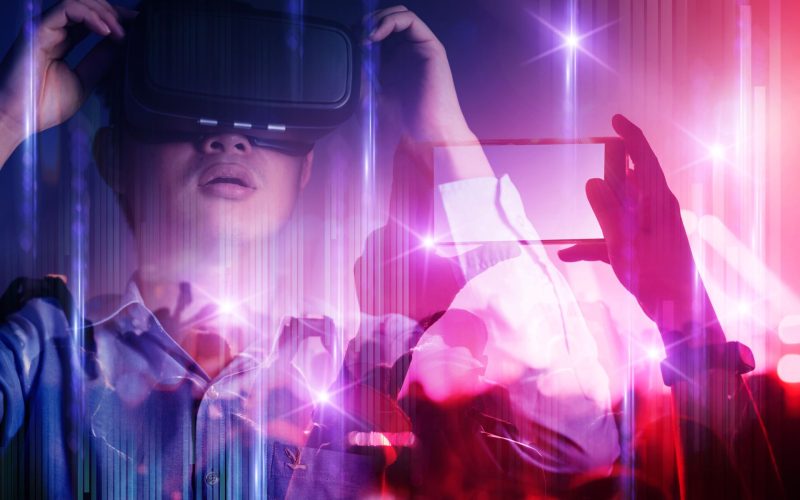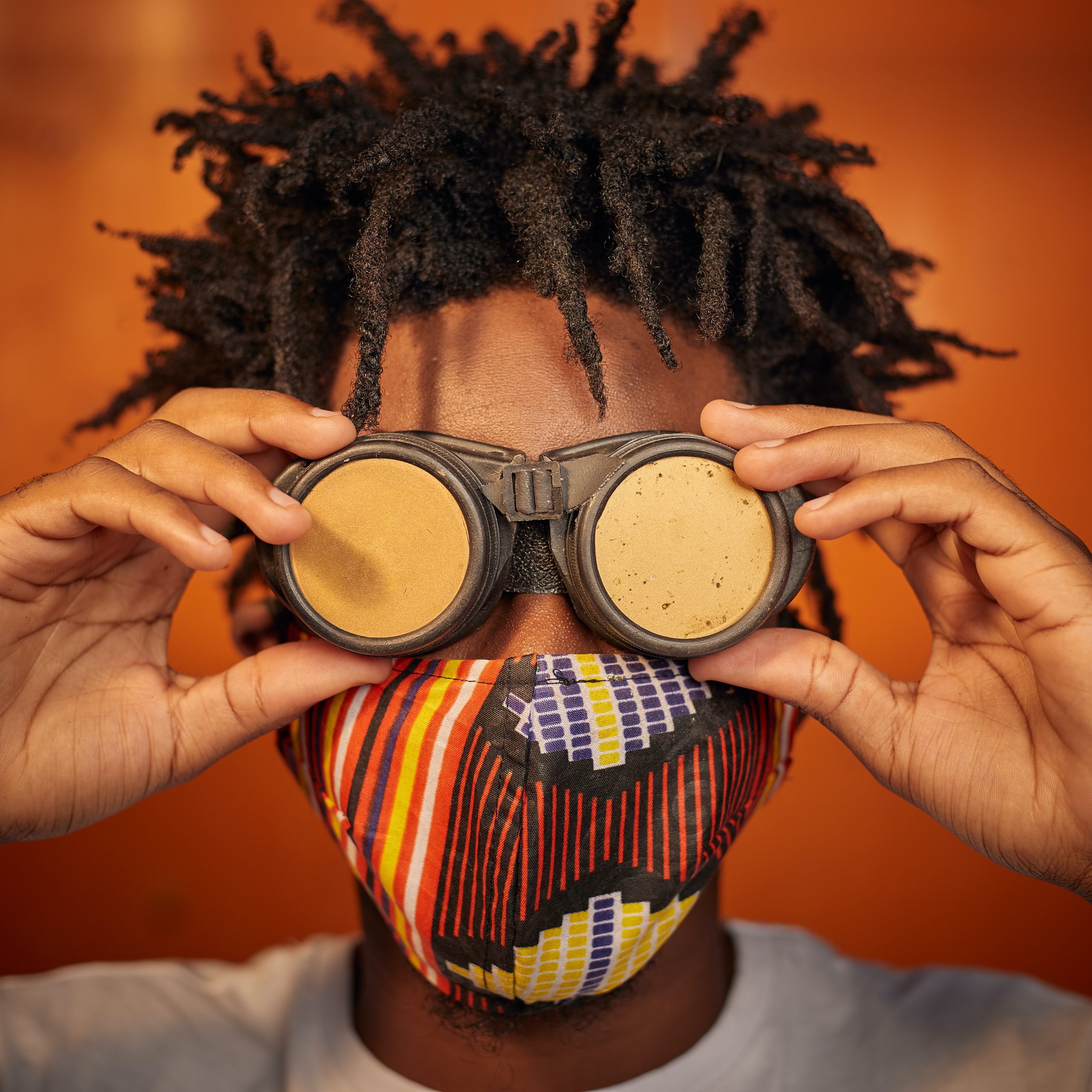Introduction
Virtual Reality (VR) has been steadily evolving from a niche technology into a mainstream medium that promises to revolutionize various sectors, including entertainment. Among the most exciting applications of VR is its potential to transform live concert experiences. This article delves into the promising future of VR in live concert experiences, examining current trends, technological advancements, and the potential impacts on artists, audiences, and the music industry as a whole.
The Rise of VR in Entertainment
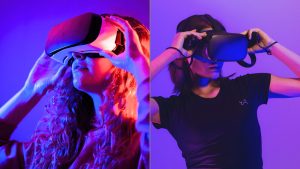
The music industry has always been at the forefront of adopting new technologies to enhance the concert-going experience. From the advent of electric guitars to sophisticated lighting and sound systems, each innovation has aimed to make live performances more immersive and engaging. Now, VR technology stands on the brink of creating a paradigm shift in how we experience live music.
Current Trends in VR Concerts
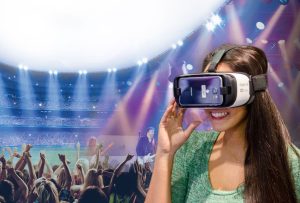
1. Immersive Experiences
One of the most compelling aspects of VR in live concert experiences is its ability to create immersive environments. Users can feel as though they are physically present at a concert, regardless of their actual location. This is achieved through high-definition visuals and spatial audio that mimic the acoustics of a live venue.
2. Accessibility
VR concerts have the potential to democratize access to live music. Physical limitations, geographical barriers, and even financial constraints can be mitigated by offering virtual tickets at a fraction of the cost of traditional concert tickets. This opens up new opportunities for fans who might otherwise never have the chance to see their favorite artists perform live.
3. Interactive Features
Modern VR platforms are incorporating interactive elements that go beyond passive viewing. Fans can choose different camera angles, interact with virtual avatars of other concert-goers, and even participate in virtual meet-and-greets with artists. These features add layers of engagement that are not possible in traditional concert settings.
Technological Advancements
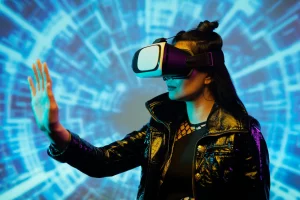
1. High-Resolution Displays
Advancements in display technology have been crucial in making VR concert experiences more realistic. High-resolution displays with minimal latency ensure that users can enjoy smooth and lifelike visuals, which are essential for creating a convincing virtual environment.
2. Spatial Audio
Audio quality is a critical component of any concert experience. Spatial audio technology, which simulates how sound travels in a three-dimensional space, has made significant strides. This allows VR concerts to replicate the acoustics of a live venue, providing an authentic auditory experience.
3. Haptic Feedback
Haptic technology is another area where significant advancements are being made. By incorporating haptic feedback, VR systems can simulate physical sensations such as the vibrations from a bass drum or the feeling of a crowd’s energy. This adds another layer of realism to the VR concert experience.
Potential Impacts on Artists
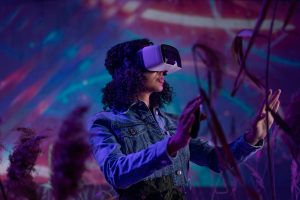
1. New Revenue Streams
For artists, VR concerts offer new avenues for revenue generation. Virtual tickets, exclusive VR content, and in-app purchases can provide additional income streams. Moreover, artists can perform for a global audience without the logistical challenges of touring.
2. Creative Freedom
VR technology also offers artists unprecedented creative freedom. Virtual stages can be designed without the constraints of physical reality, allowing for imaginative and unique concert experiences. This can lead to more innovative and memorable performances.
Potential Impacts on Audiences
1. Enhanced Engagement
For audiences, the ability to experience concerts in VR can lead to higher levels of engagement. The interactive features and immersive environments make it easier for fans to feel connected to the performance and the artist.
2. Social Interaction
VR platforms often include social features that allow fans to interact with each other in real-time. This can create a sense of community and shared experience, even among users who are miles apart.
Challenges and Considerations
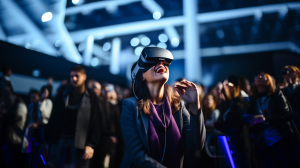
1. Technical Barriers
Despite the promising potential, there are still technical barriers to widespread adoption. High-quality VR systems can be expensive, and not all consumers have access to the necessary hardware and internet speeds.
2. Content Quality
The quality of the VR content is another critical factor. Poorly produced VR concerts can detract from the experience and may deter users from trying VR concerts in the future. Ensuring high production values is essential for the success of VR in live concert experiences.
3. Privacy and Security
As with any digital platform, privacy and security are significant concerns. Ensuring that user data is protected and that the platform is secure from cyber threats is crucial for gaining and maintaining user trust.
Conclusion
The future of VR in live concert experiences looks incredibly promising. Technological advancements are making it possible to create highly immersive and interactive environments that can enhance the concert-going experience. For artists, VR offers new revenue streams and creative possibilities, while audiences can enjoy greater accessibility and engagement. However, overcoming technical barriers and ensuring high-quality content will be essential for the widespread adoption of VR concerts. As the technology continues to evolve, it is likely that VR will become an integral part of the live music landscape, offering exciting new possibilities for both artists and fans.
In conclusion, VR in live concert experiences is not just a futuristic concept but a rapidly approaching reality that promises to redefine how we experience live music. As technology continues to advance, the potential for creating truly immersive and interactive concert experiences will only grow, making VR an exciting frontier in the world of live entertainment.






